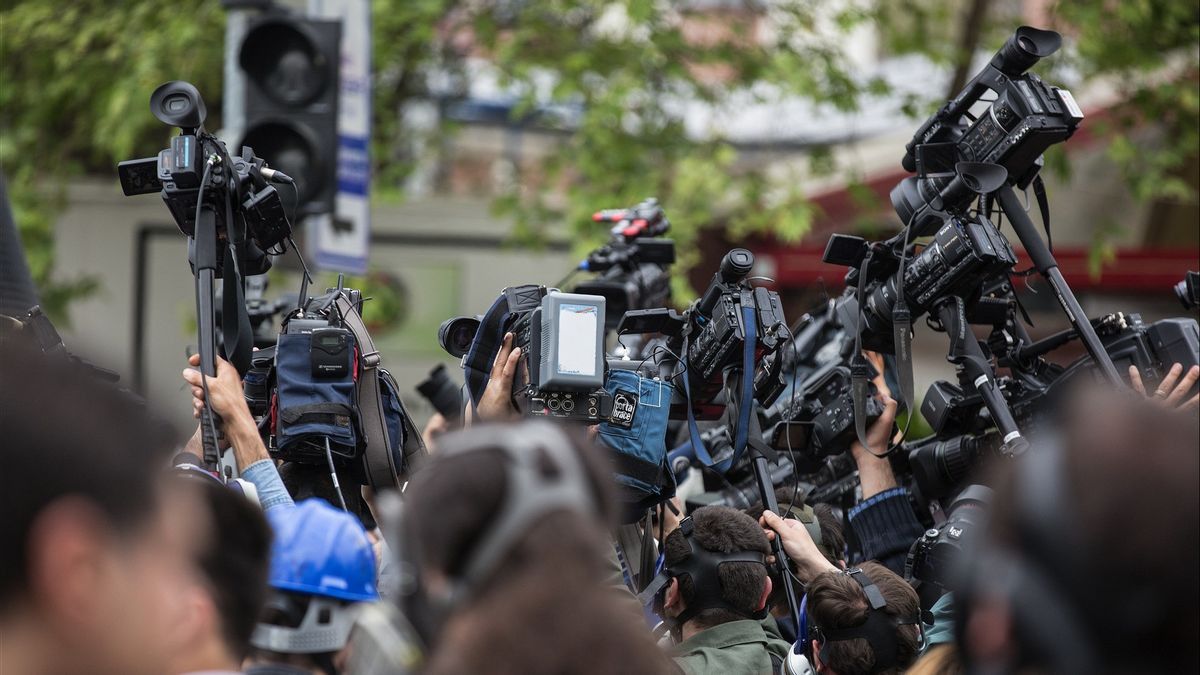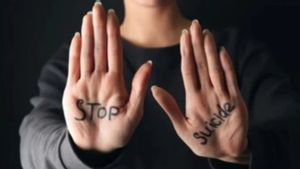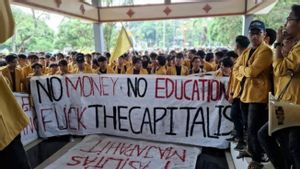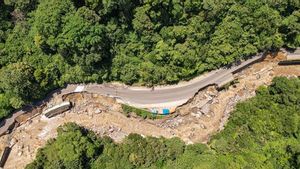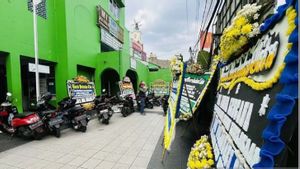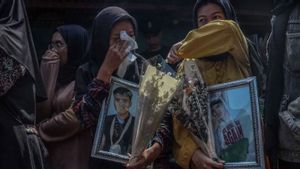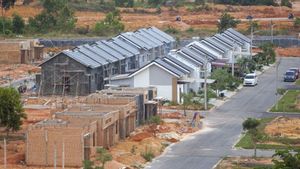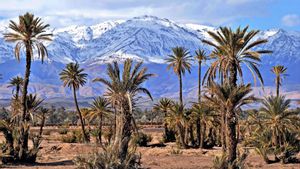JAKARTA The revised draft of Law Number 32 of 2002 concerning Broadcasting which is being discussed by the DPR sparked negative reactions from various circles. The highlight is the matter of banning investigative news. A number of articles in the Broadcasting Bill are also called confusing, threatening press freedom, and even detrimental to the public.
In the draft revision of the Broadcasting Law that was circulated, one of the articles that drew the most criticism was Article 56 paragraph 2 point c. Its content prohibits the broadcast of exclusive content of investigative journalism.
According to a number of circles, the revision of the Broadcasting Law will only suppress press freedom and is not in line with the Press Law. Secretary General of the Alliance of Independent Journalists (AJI) Bayu Wardhana said the draft revision of the broadcasting law that was being discussed by the DPR was confusing.
"This article is confusing. Why is there a ban on the exclusive broadcast of investigative journalism? This initiative limits the work of investigative journalism from being broadcast on broadcasting. An attempt to silence the press is very real," said Bayu.
Meanwhile, the Minister of Communication and Information (Kominfo) Budi Arie Setiadi spoke up regarding the draft revision of the Broadcasting Law which was considered to threaten press freedom. Budi Arie also highlighted the part that was considered threatening investigative journalism. According to him, the product should not be banned.
"Jurnalistics must be investigated, must it be prohibited? Journalism must develop because we are also developing society," said Budi Arie.
One of the draft revisions of the Broadcasting Law which is claimed to prohibit investigative journalism will not only harm the press, but also the public. How not, if this later gol, the public will almost certainly only be presented with news containing ceremonial content, instead of critical news.
Media and communication study center researcher Remotivi Muhammad Heychael said Article 56 paragraph 2 point C in the revision of the Broadcasting Law was ambiguous and confusing. He felt this article was made because there was a desire to prevent certain journalistic products, such as the documentary Dirty Vote which reviewed allegations of election fraud. According to him, this is against journalistic principles.
"In fact, journalism must not only be accurate and correct, but that information must be actual. I'm afraid our public space will die out," said Heychael.
The investigation is said to be on the highest throne by journalistic works. That's why the article became one of the most highlighted when it was included in the draft revision of the Broadcasting Law.
SEE ALSO:
Dandhy Laksono, founder of the Watchdoc Documentary production house, was also surprised by the existence of the article. He is worried that if the article is not revoked from the revised draft, the public will lose the opportunity to get information processed through the correct journalistic rules.
"As a filmmaker and journalist, I don't care. I may violate the law if this is legalized. It is increasingly prohibited, all content creators should, all journalists must further make investigative works, civil disobedience of [RUU]," said Dandhy.
The name Dandhy Laksono has been poor across the Indonesian documentary scene. He became the mastermind behind hundreds of documentary titles including Sexy Killers who explored the coal business and The Endgame related to the polemic of the KPK's national insight test.
Most recently, he also made the film Dirty Vote which was first screened on YouTube on February 11 or exactly three days before the 2024 Presidential Election. This 117-minute film features three constitutional law experts who reveal what they call fraud in the 2024 presidential election process.
Chairman of the Indonesian Television Journalists Association (IJTI) Herik Kurniawan also invited press personnel to reject the revision of the Broadcasting Law because it could threaten press freedom. He assessed that the revision of the law has the potential to become a tool to silence press freedom and individual creativity on various platforms.
According to Herik, the prohibition of making investigative news makes press personnel in the broadcasting world unable to produce quality journalistic works. In addition, this can also include the press in carrying out public control over the government.
"As long as the work adheres to the journalistic code of ethics, based on the correct facts and data, it is made professionally and solely for the public interest, then no one should prohibit the work of investigative journalism from being broadcast on television," he said.
The exclusive content of the investigation is not the only thing that is in the spotlight in the draft revision of the Broadcasting Law. Another thing that has also received criticism from media activists is the existence of an article that gives the authority to special press disputes in the broadcasting sector by the Indonesian Broadcasting Commission (KPI).
In fact, previously there was a Press Council that handled the case. This rule has the potential to give too much authority to KPI as well as 'termination of the Press Council' according to Gadjah Mada University Communications Science lecturer Wisnu Prasetya Utomo.
Regarding the authority of KPI in regulating press disputes, journalistic lecturers at Multimedia Nusantara University, Ignatius Hariyanto, reminded that KPI is a political form, whose members are selected by members of the DPR.
"While the Press Council is more independent because its members are the balance of heritage organizations, media companies, and the public," he concluded.
The English, Chinese, Japanese, Arabic, and French versions are automatically generated by the AI. So there may still be inaccuracies in translating, please always see Indonesian as our main language. (system supported by DigitalSiber.id)
